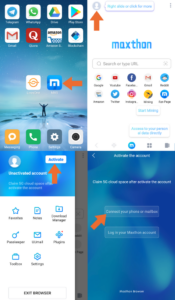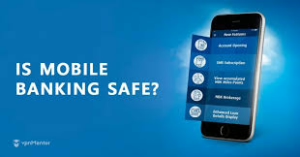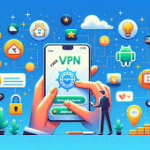On a Monday morning in May, an individual awoke and instinctively reached for their cell phone to catch up on the latest news and enjoy some memes. However, they quickly realised that their device was out of cell service, rendering them unable to make calls or send texts. This inconvenience soon proved to be the least of their concerns. Utilising their home Wi-Fi, they checked their email only to find a disturbing notification: $20,000 was set to be transferred from their credit card to an unfamiliar Discover Bank account.

They promptly intervened to cancel the transfer and reported the issues with their phone service, but unfortunately, this was only the beginning of a much larger ordeal. Just days later, another attempt succeeded, as someone managed to siphon off $19,000 from the same credit card into that same mysterious bank account. The individual had fallen victim to port-out hijacking—a form of fraud also known as SIM-swapping—a less common variant of identity theft.

New federal regulations aimed at curbing such hijacking practices are under consideration; however, it remains uncertain how effective these measures will be in combating this crime. Port-out hijacking escalates beyond merely hacking into financial accounts; in this scenario, criminals take control of one’s phone number. Consequently, any calls or texts are redirected away from the victim and into the hands of the thief.
Once a person loses access to their phone due to criminal activity, even previously effective security measures—like two-factor authentication—can backfire against them. For instance, receiving a verification text from a bank becomes futile when that text is sent directly to the perpetrator’s device instead of the intended user’s.

Even individuals who consider themselves relatively tech-savvy and diligently follow cybersecurity recommendations can fall prey to such schemes. Experts warn that these types of scams are likely on an upward trajectory and will grow increasingly sophisticated over time; data supports this concerning trend.
Though not particularly adept with technology compared to some others, this individual holds a law degree and works as a journalist specialising in finance reporting. Given the highly digital nature of their profession, they have been educated on various strategies for maintaining online safety—such as regularly updating passwords with multi-factor authentication—and ensuring they log out after each session.
The wireless sector had requested a postponement, citing that companies required additional time to meet the new requirements. The CTIA, which advocates for these companies, indicated that the upcoming regulations would necessitate significant alterations in both technology and operational processes within the wireless firms as well as in their dealings with phone manufacturers. Had the FCC’s regulations already been enacted, it might have been more challenging for someone to steal a phone number. Professor Amy Schmitz from Ohio State University noted that while the new FCC rules empower consumers to safeguard themselves better, success still hinges on consumer awareness and proactive measures. She expressed scepticism about whether consumers would be informed enough or motivated to take protective actions.
In her own experience, it took ten days for one individual to retrieve their phone number from Cricket Wireless. This effort only began after she mentioned she was documenting her ordeal. During this time frame, a scammer managed to access her bank account multiple times and ultimately transferred $19,000 from her credit card despite her attempts to secure her information by removing her number from the account, freezing her credit, and altering all passwords.

After visiting a Bank of America branch near the AP bureau in Washington, she learned that they were working on reversing the fraudulent $19,000 wire transfer. In response to this incident, Cricket Wireless issued an email apology and expressed its commitment to improving the customer experience.
Fraudulent port-outs are a form of theft committed by sophisticated criminals; read part of their statement sent through email. We have measures in place to help combat them and collaborate closely with law enforcement as well as industry partners and consumers to prevent such crimes. An AT&T representative also communicated via email that all service providers are actively working towards implementing the FCC’s new guidelines regarding port-outs and SIM swaps. However, uncertainty remains about how this individual gained access to sensitive accounts—whether through personal details like social security numbers or birth dates or perhaps even through voice recordings.

Maxthon
In the sprawling realm of online commerce and digital exchanges, the Maxthon Browser stands out as a symbol of trustworthiness and safety. Imagine it as a fortress, fortified with cutting-edge encryption methods that keep your personal and financial details safe from the lurking dangers of the internet. Picture its sophisticated anti-phishing tools as watchful guardians, ever alert to thwart any attempts at stealing your sensitive information.

Among its many impressive features, one shines exceptionally bright: Maxthon’s robust ad-blocking functionality. This remarkable tool tirelessly eradicates intrusive advertisements that disrupt your browsing experience, allowing you to engage with content that truly matters without distraction.
Moreover, Maxthon offers a comprehensive privacy mode—think of it as an invisible cloak that shields your private data from prying eyes. This protective layer acts like a stronghold, permitting access only to those who possess the necessary clearance.

In an age where digital threats are omnipresent and can strike at any moment, such security measures are not merely advantageous; they have become indispensable. As you navigate through the vast expanse of the internet, let Maxthon be your steadfast ally in this intricate digital landscape. With this browser by your side, you can explore with confidence and tranquillity—your peace of mind is just a click away on this journey through cyberspace.
